Business Lending
World Business Lenders Responds to the New York Post Story
April 13, 2018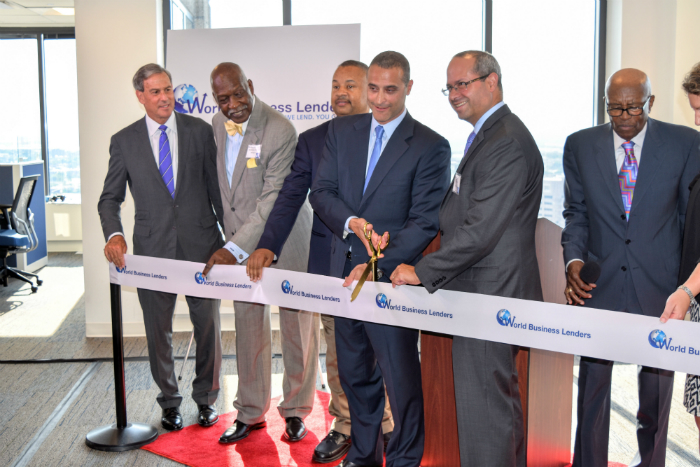
A controversial story published in the New York Post earlier this week about World Business Lenders has drawn a response from the company. The text below was circulated by email to all World Business Lenders employees. With permission, it is being republished here.
——-
As you may be aware, an article appeared earlier this week in a local tabloid which described entirely unsubstantiated allegations against our company and members of its senior management team made by a disgruntled former employee. Because the allegations are as inflammatory as they are baseless, I thought you should hear from me, since I am responsible for the day-to-day operation of the company’s business and ensuring compliance with its policies. Nevertheless, I am accountable to WBL’s Board of Managers. As soon as we became aware of these false allegations, we alerted the Board, including retired U.S. Congressman Edolphus Towns, who chairs the Board committee which focuses on WBL’s reputation in the business community. During his many decades of distinguished service to our country, Congressman Towns chaired the U.S. Congressional Black Caucus and the U.S. Committee on Oversight and Government Reform.
First, the allegations of race discrimination are patently false. I am very proud of WBL’s unwavering commitment to the practice of providing equal employment opportunities to all of its employees and applicants; our company has zero tolerance for employment discrimination or retaliation of any type. And, I want to remind you that, if at any time you feel you are being treated unfairly at work, for any reason, WBL’s policy encourages you to surface and escalate such concerns.
Second, I want to address this disgruntled employee’s outrageous and untrue allegations that WBL defrauded the State of New Jersey. Since we moved to Jersey City in 2016, we have been welcomed with open arms by the State and maintained a cooperative and constructive relationship. WBL has participated in and supported State programs designed to provide employment to some of New Jersey’s most vulnerable residents. We continue to enjoy our partnerships with various State agencies, including our ongoing grant from the Economic Development Authority. To be clear, at no time has any agency of the State of New Jersey expressed any concerns or reservations about our Company or its activities. Rather, we have been commended for our contributions to the economy, both locally and on a state-wide basis.
Finally, I want to assure you that WBL is not in the habit of succumbing to poorly veiled financial demands, and we will not do so here.
– Doug Naidus, CEO
Lendio’s New Turndown Program Grows
April 11, 2018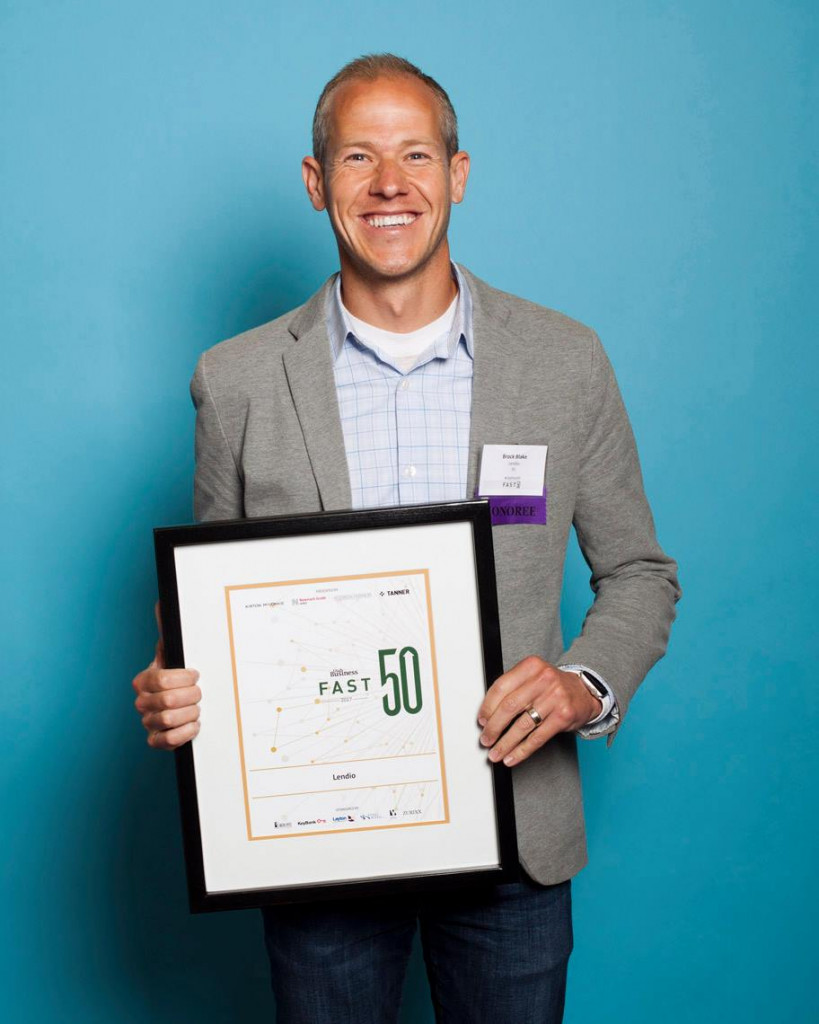 Lendio, the marketplace for borrowers and lenders, announced on Monday that its Turndown program has facilitated nearly $60 million in loans in less than a year since its launch last summer. The Lendio Turndown program allows participating lenders to refer borrowers to the Lendio marketplace that have been declined.
Lendio, the marketplace for borrowers and lenders, announced on Monday that its Turndown program has facilitated nearly $60 million in loans in less than a year since its launch last summer. The Lendio Turndown program allows participating lenders to refer borrowers to the Lendio marketplace that have been declined.
“Instead of just saying ‘No’ to a customer and wishing them the best of luck, we’ve established this Turndown program where a lender can say ‘Unfortunately, [you’re] not a great fit for us, but we work directly with Lendio and they have a marketplace and other loan options,’” Lendio CEO Brock Blake told deBanked.
The lender has an incentive to refer a declined customer to the Lendio marketplace because the lender gets a revenue share if the customer it declined is funded by another lender on the Lendio marketplace.
“We’re very excited about the Turndown program because it allows us to deepen the relationships we have with our lenders…and it also helps [lenders] monetize and recoup some of their marketing spend,” Blake said.
While the Turndown program started in beta about two years ago, it wasn’t launched until the second quarter of 2017. So far, the program has 20 lender partners, some of which are not the same as the 70 participating lenders on the Lendio marketplace platform. Blake told deBanked that he hopes all 70 lenders will join the Turndown program, as well others, including banks.
Blake also said that most people think a “turndown” automatically means that a borrower has across-the-board bad credit. He concedes that this could be the case, but also acknowledged that there are a variety of loan products that have different credit requirements.
“If a borrower comes in for an equipment loan and they are not going to qualify for an equipment loan, then they might be declined,” Blake said. “But they might qualify for a working capital loan.”
Based in Salt Lake City, UT, the company was founded in 2011 and also has an office in New York. Of about 150 employees, 100 work at the headquarters in Salt Lake City and 50 work in New York.
Kabbage, LendingPoint to Offer Real Time Funding Via Push Payments
April 9, 2018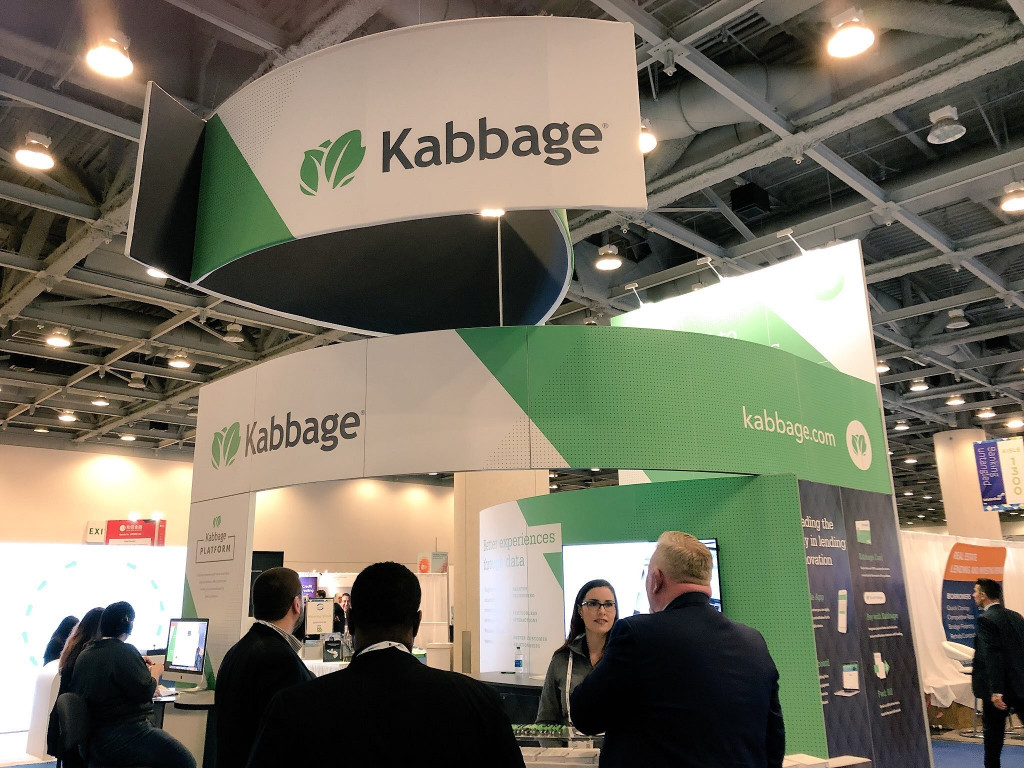 Kabbage and LendingPoint each separately announced today that they will soon be able to get funds into their customers’ business accounts instantly and 24/7 via their pre-existing bank debit card. Hopes for this are not brand new. Last October, OnDeck announced a partnership with Ingo and Visa that would provide this convenience to borrowers, although this has not yet come to fruition, according to an OnDeck spokesperson. This is also not Kabbage’s first foray into real-time loan funding.
Kabbage and LendingPoint each separately announced today that they will soon be able to get funds into their customers’ business accounts instantly and 24/7 via their pre-existing bank debit card. Hopes for this are not brand new. Last October, OnDeck announced a partnership with Ingo and Visa that would provide this convenience to borrowers, although this has not yet come to fruition, according to an OnDeck spokesperson. This is also not Kabbage’s first foray into real-time loan funding.
“We launched [a real-time loan product] through the debit network three years ago and we were really excited about the results,” said Kabbage co-founder Kathryn Petralia . “Our customers really liked it, [but] our challenge was that we couldn’t get broad enough coverage. Only a small percentage of our customers were able to use it…so we’re excited about our partnership with Ingo because it gives us the ability to broaden this to about 90 percent of our customers.”
Kabbage has entered into a relationship with Ingo and has plans to make this service available to customers this summer. One might wonder why, on a weekend, a merchant needs money and can’t wait until Monday?
 “Our customers are always looking to expedite the process,” Petralia said, “not because they’re desperate for cash, but because they really are desperate for time, and they don’t want to spend a bunch of time reconciling their bank accounts [and] making sure the funds have arrived. This is a much cleaner way for them to get access to capital.”
“Our customers are always looking to expedite the process,” Petralia said, “not because they’re desperate for cash, but because they really are desperate for time, and they don’t want to spend a bunch of time reconciling their bank accounts [and] making sure the funds have arrived. This is a much cleaner way for them to get access to capital.”
Meanwhile, as part of an announcement by LendingPoint today, the company said that later this year it will be able to “instantly disburse loans to approved borrower accounts through their debit cards, 24/7/365.” This will be facilitated through the TabaPay platform, which also enables LendingPoint borrowers to use their debit card to make loan payments.
InterNex Capital Fills Void in Higher End of Alternative Lending Market
April 6, 2018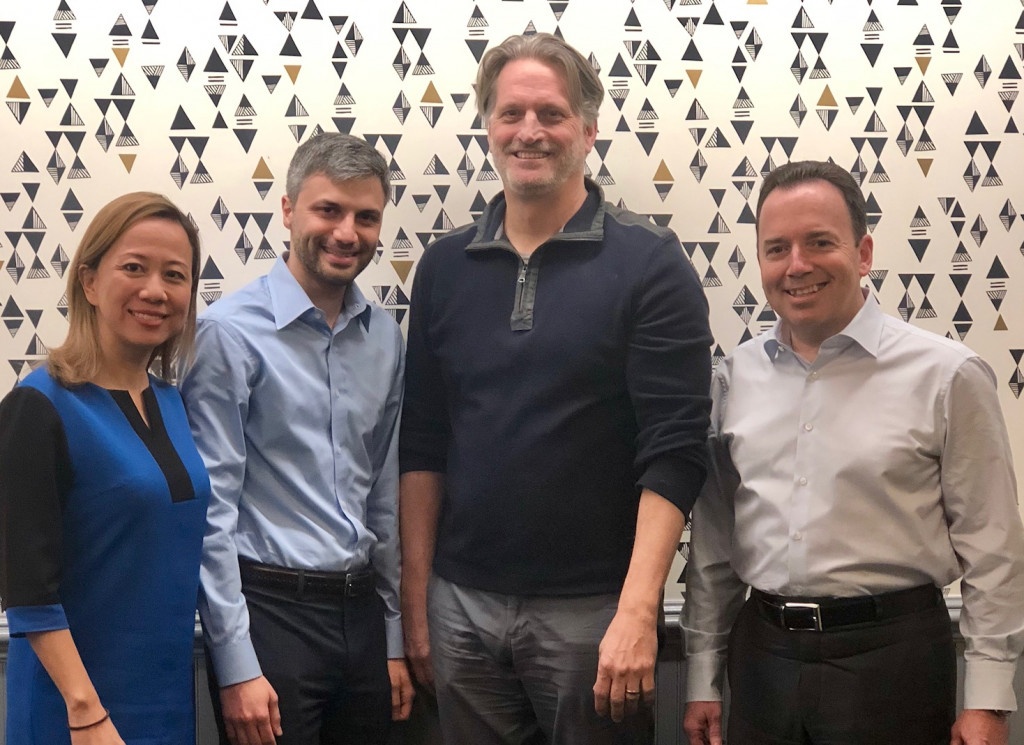
New York-based Internex Capital is serving the higher end of the alternative lending market by providing revolving lines of credit from $250,000 to $5 million dollars, with an average deal size of roughly $1 million.
“We realized that there was not a revolving line of credit solution for small businesses,” said Simon Hermiz, a Fintech entrepreneur and one of the four founders of InterNex Capital. “This product does exist in the middle market and large corporate markets, but [didn’t] exist for small businesses.”
So the team of founders decided to fill this void, particularly in the lower-middle market, or for small businesses with revenues up to $50 million, but no less that $1 million, Hermiz told deBanked. Two members of the founding team, CEO Paul DeDomenico and COO Lin Chua, are former GE Capital veterans. The other two are Hermiz, who manages risk, and CTO Jim Miller, who has worked in credit technology for years.
Hermiz explained that there were essentially only three alternatives for small businesses in search of capital: cash advances, term loans and factoring. While banks have long provided credit to large companies based on the company’s assets, called “asset based line of credit,” there had not been a product like this for small companies.
“So what we want to do is craft an upper end kind of product in this market so that [small businesses] can feel bankable,” Hermiz said, “…because with our line of credit product, we’re not notifying all their customers that they sold their invoices. Because they’re not selling invoices.”
InterNex Capital does not do factoring, but its product resembles factoring.
“The important nuance is that we’re not buying the invoice, like a factor. We’re lending against it,” Hermiz said.
Because banks also lend against invoices, Hermiz said that the company, of 15 employees, competes with banks for business. They work mostly with ISOs, but they also have an internal sales team that handles client relations.
Founded in 2015, InterNex Capital’s proprietary platform is called Velocity and was designed in large part by the company’s partner, Genpact, a public company that was incubated in GE.
Liquid FSI Adds Key Board Member
April 5, 2018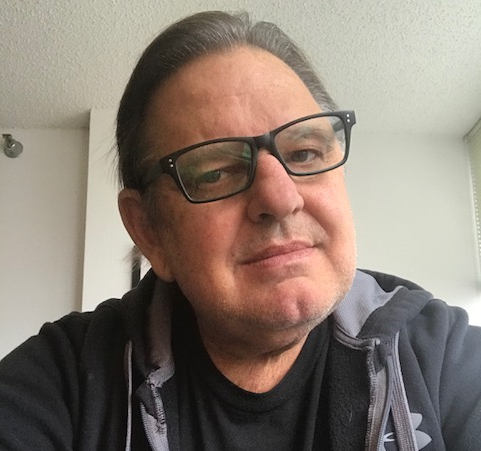
Liquid FSI, a direct lender and creator of the Convert2Pay platform, which provides on-demand payment for medical invoices, added Barry Blecherman to its Board of Advisors.
While a few recent graduates of the NYU Tandon School of Engineering were helping the Liquid FSI team with some algorithms for their technology platform, they mentioned Blecherman, a professor of Finance and Risk Engineering at the Tandon School.
“I looked him up and I contacted him and he turns out to be one of the leading guys for risk [and] financial engineering in the country,” said Frank Capozza, CEO of Liquid FSI. “We had a bunch of lunches, and at one of the lunches [Blecherman] said to me, ‘Don’t even give me a presentation. My wife is a pediatrician. I’m on board.’ He totally got it.”
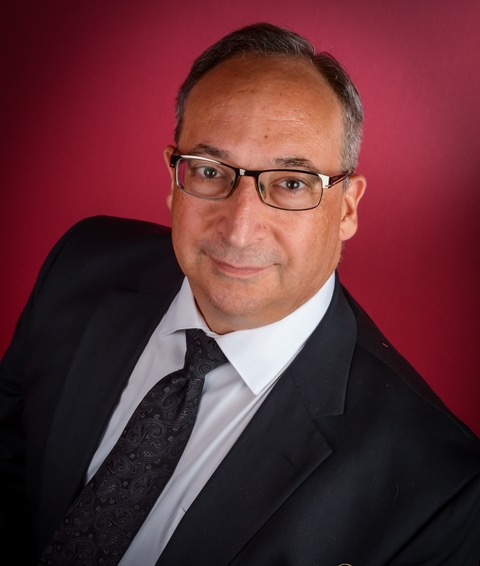
Why did Blecherman relate more quickly to Liquid FSI given that his wife is a pediatrician? Because the company’s main product, Convert2Pay, allows medical practitioners, such as doctors, to get paid early for their medical claims that can otherwise take insurance companies months to pay. This sounds like factoring because it is like factoring. However, there are some significant differences.
“There are a number of things in factoring that we wanted to disrupt,” Capozza said.
The first is notification to the payer that someone else now owns the invoice. In the case of a doctor, that means notifying the insurance company that Liquid FSI now owns the doctor’s invoice.
“We said ‘that’s an insult to the doctor,’” Capozza said. “The doctor thinks, ‘I want to sell these claims, but I don’t want the insurance company to know that I’ve assigned them to someone else.’”
Capozza said that practitioners, which also include medical labs or hospice care companies, are less likely to sell their claims if they know that the insurance company will be notified.
In addition to not notifying, Capozza said that Liquid FSI differs from a traditional factor in that they will generally end up paying a medical practitioner more of what they are owed because they have access to more precise information. Liquid FSI calculates how much money the practitioner will likely receive by analyzing data from medical billing companies, whereas Capozza said that traditional factors will take the anticipated amount and give the practitioner 75% of it, to cover for potential underpayment.
Practitioners, who pay Liquid FSI a transaction fee and an origination fee, are not the company’s only clients. In fact, other lenders make up a big percentage of the business. Lenders pay a licensing fee to Liquid FSI to use its proprietary software.
Until the Convert2Pay platform was launched in November 2016, Capozza maintains that, given the complexity of the medical billing system, lenders had a big dilemma.
“A lender says ‘Well, we don’t really know how much this [claim] is worth,” Capozza said. “That’s number one. Number two, ‘We don’t know whether the medical billing company is doing their job properly. And if they mis-code [the claim], it’s going to go back into the system and could be delayed another 30 days.’”
Founded in 2014 and based in New York, Liquid FSI gets its practitioner clients through partnerships with companies that sell consumer products to doctors’ and dentists’ offices. While a salesperson is pitching a product, they will also mention Liquid FSI’s on-demand payment product.
Capozza is no stranger to the funding business. In fact, he is among the original players in the MCA industry and was the first to bring the MCA concept to Europe.
Experian To Stop Reporting All Tax Lien Data
March 24, 2018 According to a March 19 letter sent by Experian to its clients, the company will remove all remaining tax liens from its consumer credit reporting database beginning the week of April 16.
According to a March 19 letter sent by Experian to its clients, the company will remove all remaining tax liens from its consumer credit reporting database beginning the week of April 16.
This finalizes the move by credit bureaus (including Equifax and TransUnion) to stop including civil judgments and tax liens on consumer credit reports.
When Experian started to omit this information last summer, many funding companies were in shock.
“The IRS could come in and seize credit card processing accounts and prevent the lender from getting paid,” David Goldin told deBanked last summer in regards to the potential risk of lien data being hidden. (Goldin is the CEO of Capify, a funding company with offices in the UK, Australia and formerly the US.) “Once you have a judgment, a creditor could come in and freeze bank accounts.”
Yellowstone Capital CEO Isaac Stern also expressed concern last summer. But fears about this have mostly been mollified as funding companies have found other ways to obtain the same information. By last fall, Yellowstone started using the Clear platform, provided by Thomson Reuters, in more thorough ways in order to obtain the same information that was no longer available to them on Experian.
“You have to dig through it,” Stern said of the vast data to be found on Clear.
Experian did not respond to requests for comment.
SBFA Braved Snow Storm for Spring Fly-In
March 23, 2018 The Small Business Finance Association (SBFA) had their Washington DC Spring fly-in earlier this week. SBFA members met with Karen Kerrigan, the President and CEO of the Small Business & Entrepreneurship Council, on Tuesday afternoon, and Congressman Josh Gottheimer (D-NJ) in the evening.
The Small Business Finance Association (SBFA) had their Washington DC Spring fly-in earlier this week. SBFA members met with Karen Kerrigan, the President and CEO of the Small Business & Entrepreneurship Council, on Tuesday afternoon, and Congressman Josh Gottheimer (D-NJ) in the evening.
Despite the blizzard, a handful of members continued to meet with members of Congress on the Hill on Wednesday.
Founded ten years ago, The SBFA is a non-profit advocacy organization dedicated to ensuring Main Street small businesses have access to the capital they need to grow and strengthen the economy.
How A New Hampshire Teen Launched A Lending Company And Climbed Into The Inc. 500
March 17, 2018Josh Feinberg was not a complete newbie when he started in the lending business in 2009, but he also had a long way to go to find success. His dad had been in the business for 15 years and shortly after graduating high school, Josh started to work in equipment financing and leasing at Direct Capital in New Hampshire, his home state. He then had a brief stint working remotely for Balboa Capital, but he wasn’t sure that finance was for him.
He was 19, with a three year old daughter, and he took a low paying job working at a New Hampshire pawn shop owned by his brother and a guy named Will Murphy.
“I was making $267 a week at the pawn shop and I was having to ask friends to help me pay my rent for a room,” Feinberg said. “So at that point, I realized that something needed to change.”
One day, while working at the pawn shop, Feinberg saw a Facebook post from a restaurant owner in search of financing for equipment. With a background in financing, he said to himself: “I wonder if I could take an application and bring it to one of the sources I know and they could pay me a commission?’”
That question prompted Feinberg to present to his brother and Murphy the idea to start a finance company. Feinberg said he drew up a business plan in a day and a half and his brother and Murphy agreed to give him $3,000 to start the company. That was November of 2012.
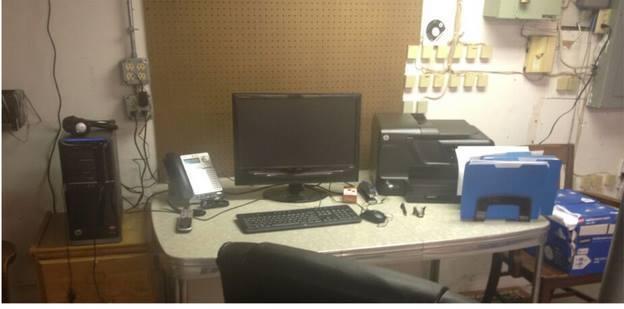
“They gave me a spot down in the basement of their shop, which was anywhere from 47 to 52 degrees,” Feinberg said. “I had my jacket, my computer and I was making 400 calls a day.”
After three months of not funding any deals, Feinberg said he almost gave up. He was also focused mainly on the equipment finance market because that’s all he really knew.
“Then come to find out that I talked to somebody that had a need for working capital and I realized that I could find sources [for] capital,” Feinberg said.
So he worked with a few different sources to find capital for this client. The deal went through in 24 hours and it paid about $7,000 in commission.
“I didn’t have any money and I was like, ‘this is awesome,’” Feinberg said. “So I [kept] making 400 calls a day, knowing that this could potentially change my life.”
And it did. After a year, Feinberg’s company, Everlasting Capital, made $110,000 in commissions and $3.5 million in volume. Within that first year, he also hired three people and moved from the basement of the pawn shop in Rochester, NH to a 600 square foot office in the same town. (The current office is also in Rochester, but in a larger space.)
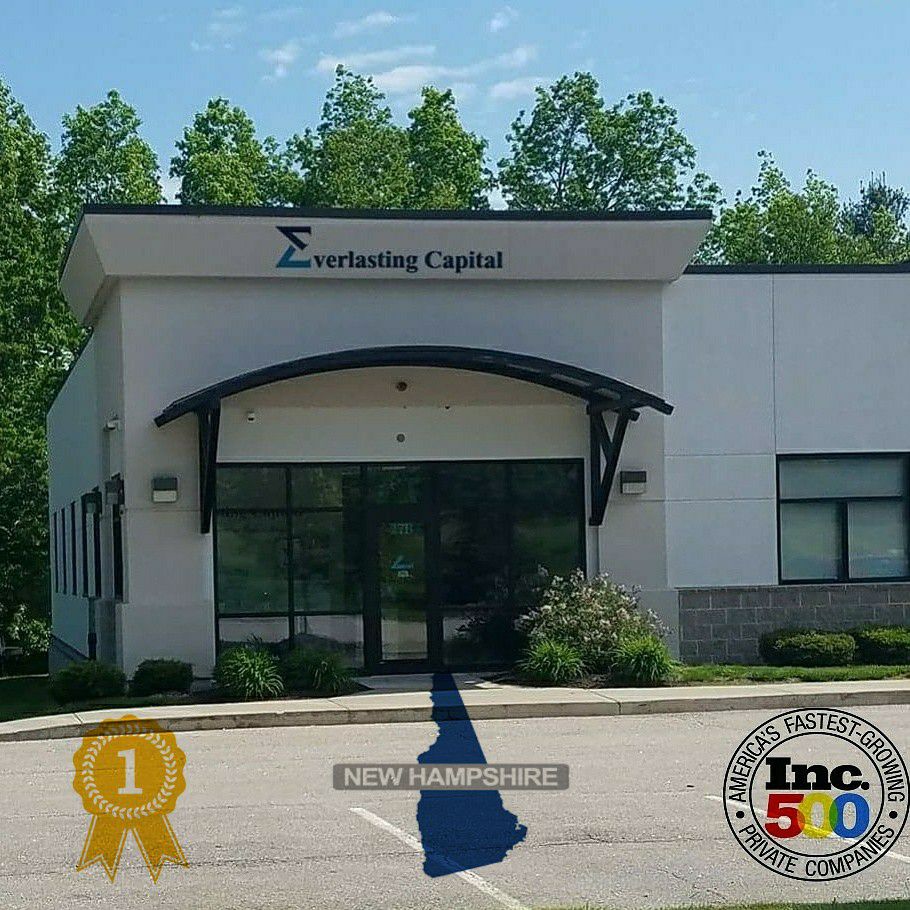
This lightning fast trajectory is by no means common. That’s why Everlasting Capital made it onto 2017’s Inc. 500 list, the iconic list of America’s fastest growing private companies. By year two, Everlasting Capital earned $640,000 in commissions, generating $14 million in volume, and by year three it earned $1.6 million in commissions with $18 million in volume. Ultimately, over a three year period ending in 2016, Everlasting Capital experienced 1,361 percent growth, placing them at No. 323 on the Inc. 500 list.
How did they do it? Feinberg said that creating a company and an office environment that employees enjoy is really critical, as is recognizing employees for their hard work.
“As long as we hit our goals which we have every year,” Feinberg said, “we take our company on a trip at the end of each year.” (Trips have included Las Vegas and Puerto Rico.)
More specifically, Feinberg said that the company’s success had a lot to do with building relationships with senior level people at top funding companies like Pearl Capital and BFS Capital. These relationships gave them higher [approved] volume, better buy rates and the ability to pay out good commissions to ISOs.
“This opened up a whole new aspect of our company,” Feinberg said. “Now, in addition to working with direct clients, we had an ISO division as well.”
But Feinberg said he wanted to create a reputable company to ensure that ISOs could feel comfortable working with them, knowing that Everlasting Capital was not backdooring their deals. So they created a portal for ISOs, called EverHub, which allows them to track their deals at every step along the way.
“We had to think outside the box to come up with a platform that was completely transparent and made it viable to work with another broker to get deals done,” Feinberg said.
There have definitely been hurdles along the way – most notably, employee retention.
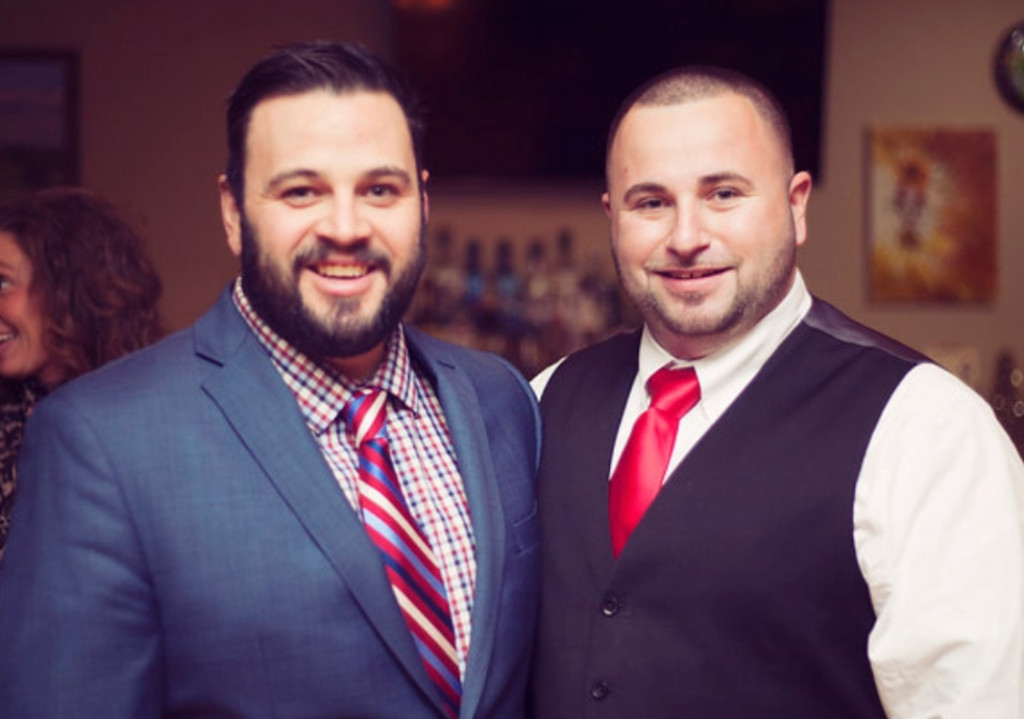
“We hired and fired about 20 people in the second year,” Feinberg said. “We wanted to see if quantity would increase sales. Come to find out, it’s more quality than quantity.”
Partnership has been another challenge. The leadership team at Everlasting Capital is now Feinberg and Murphy. Feinberg’s brother, who was Murphy’s initial partner at the pawn shop (which has since been sold), is no longer involved in it.
Feinberg said that what makes for a good partnership is communication, early and often. And being able to hold partners accountable for different responsibilities.
“Partnerships are tough in business – they tend to get a little hairy, a little crazy at times,” Murphy said.
“Like myself and Josh, we have some different views on a lot of different things, but we take our different views and we meld them together to provide the best outcome for our employees and all the people we work with. Some may see that as a downside, but it’s actually a real strength.”





























